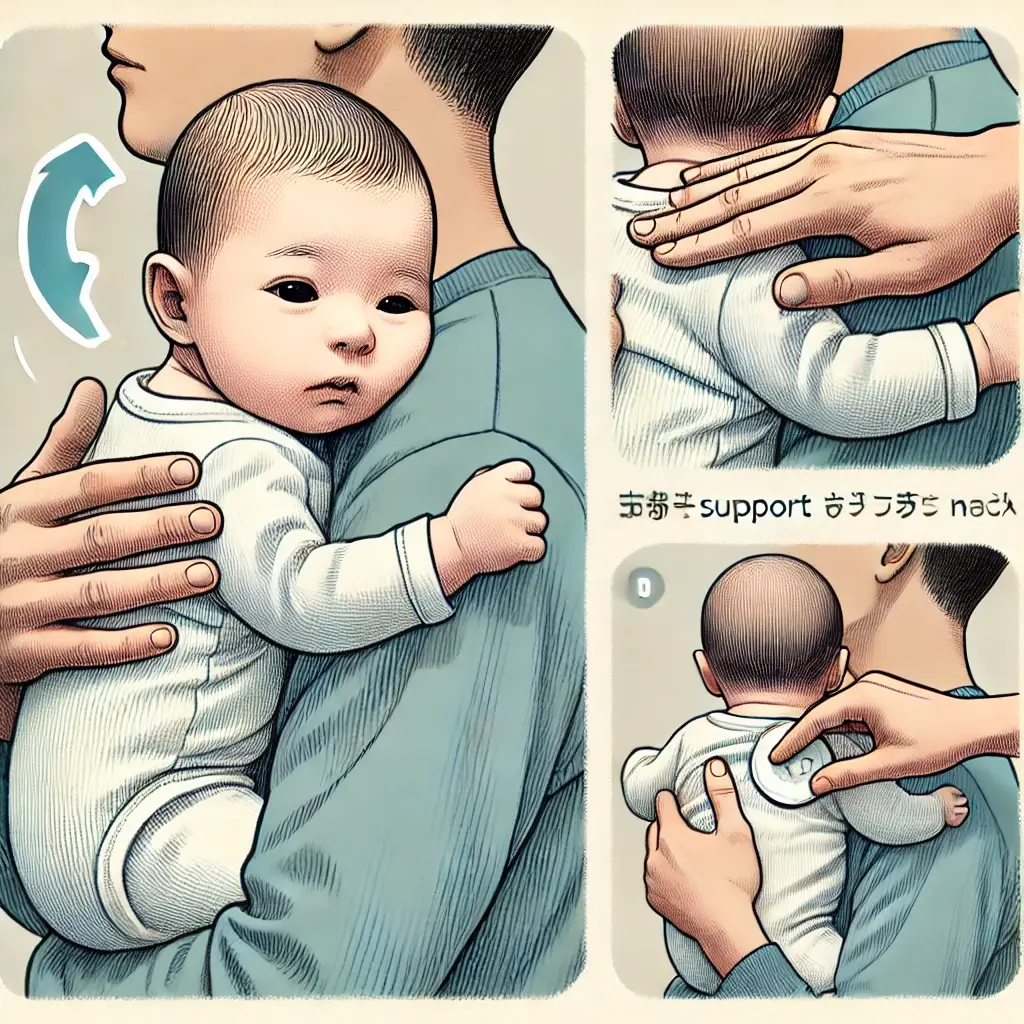Burping your baby is a vital part of daily care, especially during the first few months of life. When a baby feeds, whether through breastfeeding or bottle-feeding, they often swallow air along with their milk. This air can build up in the baby’s stomach, causing discomfort, bloating, or even crying. Burping helps release this excess air, making the baby feel more comfortable and content.
Why Is Burping Your Baby Important?
Some may think that burping is optional, but it is crucial for the baby’s well-being. When a baby swallows air during feeding, they may become uncomfortable or even fussy. Burping helps in:
- Reducing gas: Releasing trapped air prevents gas buildup and reduces bloating, which can lead to colic.
- Preventing spit-up: Burping can also help minimize the chances of spit-up by relieving pressure on the stomach.
- Calming the baby: Babies who are regularly burped tend to be calmer, as they feel less discomfort from trapped air.
When Should You Burp Your Baby?
Burping frequency largely depends on the feeding method. In general:
- Breastfeeding: Some breastfed babies may not need burping as often, but it’s a good practice to burp your baby after feeding from each breast.
- Bottle-feeding: Babies who are bottle-fed tend to swallow more air compared to breastfed babies. It’s recommended to burp your baby after every 2-3 ounces (50-60 mL) of milk.
Best Ways to Burp Your Baby
There are several techniques for burping your baby, and the right method often depends on the baby’s comfort. Here are some of the best approaches:
- Sitting on your lap: Sit your baby on your lap, supporting their head and neck with one hand, while gently patting their back with the other.
- On your shoulder: Hold your baby upright against your shoulder, with their head resting on your shoulder, and gently pat their back until they burp.
- Laying on their tummy: Place your baby on their tummy across your lap or arm, ensuring their head is slightly elevated, and pat their back gently.

Does Every Baby Need to Be Burped?
Not all babies need frequent burping. Some babies swallow very little air while feeding and may not require burping as often. However, babies prone to gas or colic can benefit greatly from being burped regularly.
How to Know If Your Baby Needs Burping
You might notice that your baby needs to be burped if they show the following signs:
- Fidgeting during feeding: If your baby suddenly stops feeding and starts fussing or squirming, they may need to be burped.
- Audible burps: Some babies attempt to burp on their own, and if you hear them burp, it indicates that air has been released.
- Bloating: If your baby’s belly feels tight or bloated, this could be a sign of trapped air that needs to be released.
Tips to Minimize Air Swallowing
Although burping helps release excess air, it’s best to reduce air intake during feeding in the first place. Here are some tips to minimize air swallowing:
- Proper feeding position: Ensure that your baby latches onto the breast or bottle properly to allow smooth milk flow and reduce the amount of air swallowed.
- Use the right bottle nipples: Choose nipples that match your baby’s age and feeding needs to prevent air intake while feeding.
- Feed in an upright position: Try feeding your baby in a slightly upright position, so their head is higher than their stomach.
Conclusion
Burping your baby is an essential part of infant care that helps keep them comfortable and prevents issues such as gas, bloating, and spit-up. By regularly burping your baby and finding the method that works best for both of you, you can avoid many common feeding-related problems. Always observe your baby’s cues to know when they need burping, and consult your pediatrician if you have any concerns about their feeding or comfort.



